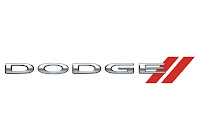We love our big pickups. They are beefy, rugged and roomy. They are the most American of vehicles, and we like that, too.
But high sticker prices and the threat of higher gas prices have many of us asking, "Do I really need a full-size truck?"
For most of us, the answer is, "No."
- Advertisement -
{"width":"300","height":"250","ccid":"47465","campid":"19059","cpm":"2.40"}
Are you currently insured?
Yes No
We can save a bundle of money with a midsize pickup, or even some crossovers, without sacrificing much performance, utility or safety.
A popularly equipped extended-cab version of the Chevy Silverado, Dodge Ram or Ford F-150 carries an average manufacturer's suggested retail price of about $30,000.
A comparably equipped extended-cab edition of the Nissan Frontier, Toyota Tacoma or GMC Canyon will have an average retail price of about $25,000.
Financing that extra $5,000 with a 48-month loan at 7% will add more than $700 in interest charges to the total cost.
You may be twitchy about fuel costs increasing, and you should be. Our experts at AAA say they expect gas prices to go up this year.
Full-size pickups have an average city/highway combined EPA-estimated fuel economy of about 16 miles per gallon.
Every 1 m.p.g. you add to that saves nearly $150 a year in fuel costs -- assuming you drive 15,000 miles a year, it would reduce fuel consumption by 56 gallons at $2.65 per gallon.
If you opt for a midsize truck that averages closer to 20 m.p.g., your savings could grow to almost $600 a year.
According to Jim Farley, Ford Motor Co.'s vice president of global marketing, studies show that 60% of full-size truck owners buy their trucks not for work, but for image or occasional towing and hauling.
Do you fall into that group?
Full-size pickups are empowering. They make us feel rugged and project a get-out-of-my-way attitude on the highway. When equipped with four-wheel drive, they can also go just about anywhere.
It's tough to give that up, but a midsize pickup can provide all of that except for the intimidation factor. Is that worth the extra 10 grand?
You probably like the high seating position and the command-of-the-road feeling a big truck offers. Not only do a number of smaller pickups fill that bill, but so do many crossovers, including the Subaru Forester, Ford Escape and Chevrolet Equinox.
You can argue that big trucks also project a feeling of security and safety.
There is no disputing that a full-size pickup puts a little more metal around you. But crash tests have shown that smaller vehicles can protect their occupants just as effectively.
The Tacoma, for example, got the highest scores possible from the government and the Insurance Institute for Highway Safety, both in frontal and side-impact crash tests.
Even occasional towing and hauling often don't require a full-size truck.
What you think about as hauling a load of peat for the weekend lawn project or building supplies for renovating the guest bathroom, vehicle manufacturers think of in terms of payload.
It means the combined weight of passengers and cargo that a vehicle can carry.
Although the cargo box of a full-size pickup is roughly 30% bigger, there is little difference in payload capacity between full-size and midsize pickups.
So you can haul about the same amount of fill dirt, peat or 2x4s, you just have to pile it a little higher in a smaller pickup.
Interior room and towing ability are where you've got to make some savvy choices.
While midsize pickups generally seat a maximum of four, full-size pickups can transport up to six with more rear-seat legroom and backseats that fold up to provide more interior storage space.
If you need those extra seats, a crossover might be the best alternative for you.
If you routinely need to pull more than 6,500 pounds, it will be hard to replace your full-size truck.
But most recreational towing, such as boats and campers, requires you to haul far less weight and is well within the capability of midsize trucks and crossovers.
Here are our favorite big-truck alternatives. As priced, their equipment levels are on par with the full-size pickups listed above. (A factory-installed towing package may be required.)
First, the midsize pickups:
Nissan Frontier King Cab LE: $25,720 with a 4-liter V6 engine that delivers a combined 18 m.p.g. fuel economy rating; 1,425-pound payload capacity, and ability to tow up to 6,500 pounds.
GMC Canyon Extended Cab SLE: $23.645 with a 2.9-liter, four-cylinder engine that delivers a combined 21 m.p.g.; 1,441-pound payload capacity, and ability to tow up to 6,000 pounds.
Toyota Tacoma PreRunner Access Cab: $23,275 with a 4-liter V6 that delivers a combined 18 m.p.g.; 1,415-pound payload capacity, and ability to tow up to 6,500 pounds.
And finally, the best crossovers:
Subaru Forester Premium: $24,490 with a 2.5-liter, four-cylinder engine that delivers a combined 22 m.p.g., can tow up to 2,400 pounds and includes all-wheel drive.
Chevrolet Equinox LT1: $24,280 with a 2.4-liter, four-cylinder engine that delivers a combined 26 m.p.g. and can pull up to 3,500 pounds.
Ford Escape XLS: $22,955 with a 2.5-liter, four-cylinder engine that delivers a combined 24 m.p.g. and is capable of towing 1,500 pounds.

 As you can see in these official pictures, the Ram brand gets to keep Dodge's well-known horn logo while Dodge, which will be positioned as a sporty and youth-orientated passenger car maker, adopts a new insignia featuring two red slashes that's inspired by the Chrysler Group's SRT performance brand.
As you can see in these official pictures, the Ram brand gets to keep Dodge's well-known horn logo while Dodge, which will be positioned as a sporty and youth-orientated passenger car maker, adopts a new insignia featuring two red slashes that's inspired by the Chrysler Group's SRT performance brand.





